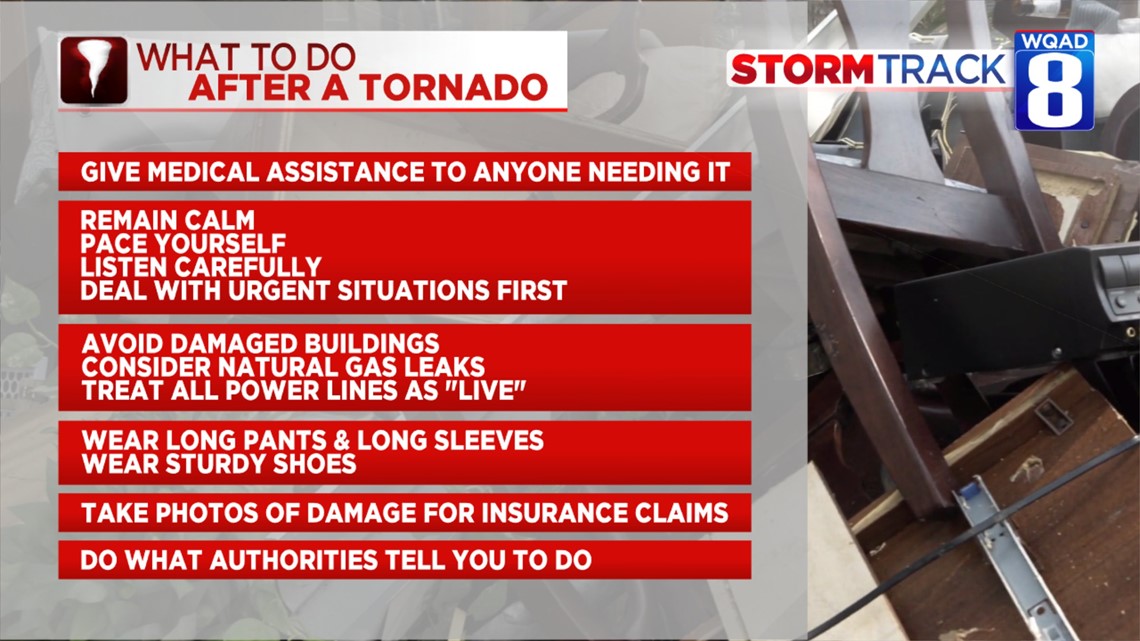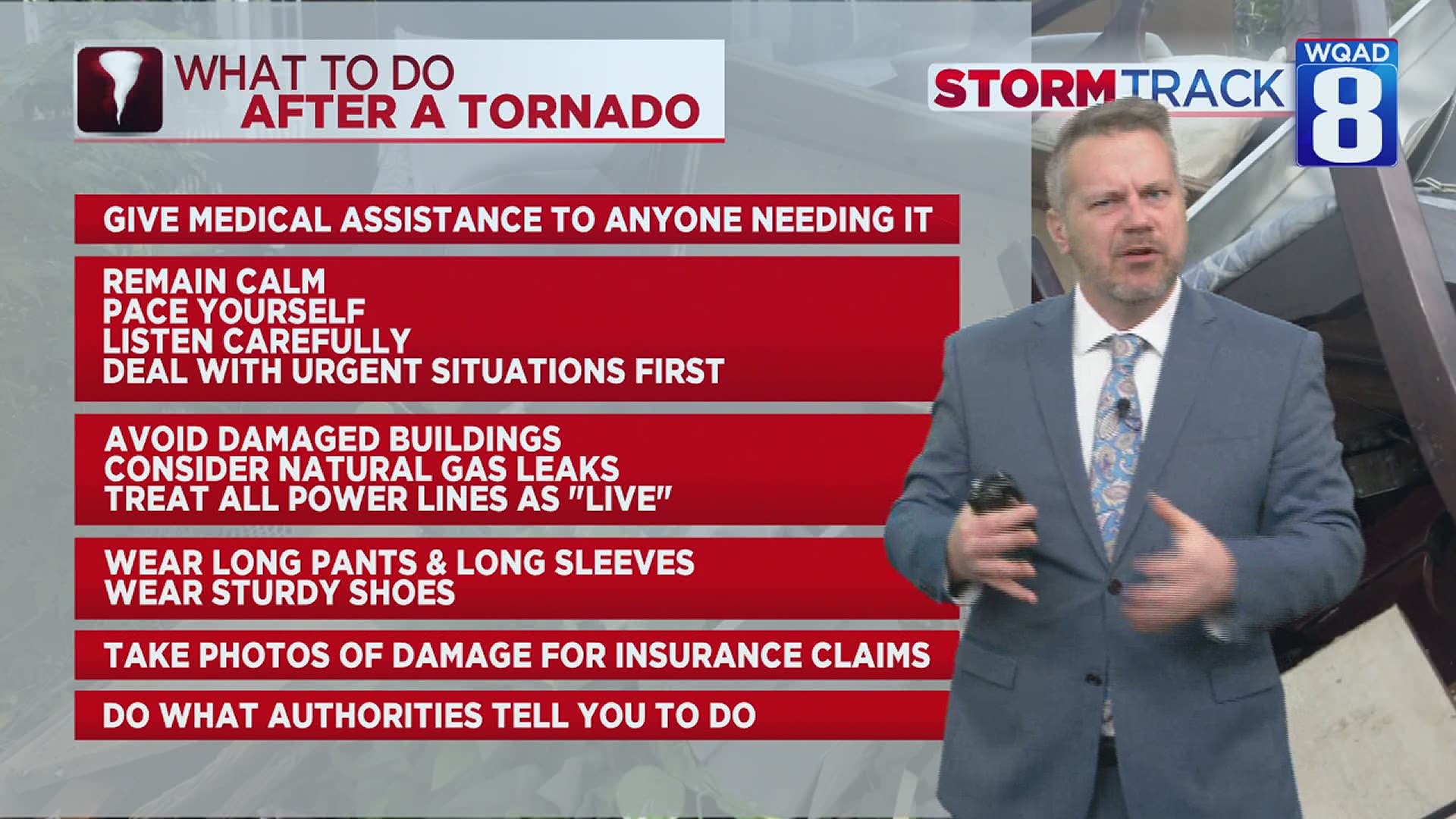EAST MOLINE, Ill. — I have never personally gone through a tornado hitting my home. However, on a storm-chase back in 2000, I was the first to come upon tornado damage. As I traveled south out of downtown Marshall, Texas on April 23rd, I witnessed several buildings destroyed. To my left, a tornado moving away in the distance.
I pulled into the parking lot of a strip mall that had been destroyed and grabbed my camera out of the backseat. As I walked closer to what used to be a Domino's Pizza, I noticed a door to a freezer being pushed open.
I dropped my camera and ran over to help about ten people get out of the freezer. It was the only thing that survived this F2 tornado.
As I talked with the survivors, the wail of emergency vehicles got louder. As firefighters arrived, they shouted "Get away from the buildings. There are gas lines!"
What if one of the survivors had lit a cigarette after the tornado? It's something few people think about and that's why it's important to talk about what to do after a tornado disaster.


First and foremost, after a tornado: see if anyone needs medical attention. Even a little soap and water and a bandage can help fight against infection and stop bleeding. Think about taking a CPR course before a tornado affects you.
If you survive a tornado, remain calm. Pace yourself and listen carefully to others. Deal with the most urgent situations first.
Avoid damaged buildings. Walls and roofs may not be stable after a tornado. Consider natural gas lines and treat all power lines as "live."
There will be sharp objects like broken pieces of woods, metal, and nails after a tornado. Wear long pants like jeans, long-sleeve shirts, and boots.
Take plenty of photos. These will come in handy as insurance claims are filed.
Finally, do everything that authorities tell you to do. Clean up from tornadoes can take months. Don't feel you need to rush things in the first few hours.
-Meteorologist Eric Sorensen
If you are away from home, return only when authorities say it is safe to do so. Continue listening to local news or a NOAA Weather Radio for updated information and instructions.
Once the tornado warning has been allowed to expire or is cancelled, the University or local jurisdiction will forward this information.
If you smell gas or hear a blowing or hissing noise, open a window and get everyone out of the building quickly. From a safe distance, call 911. Use the telephone only for emergency calls. Avoid damaged buildings. Keep all of your animals under your direct control.
While checking out damage:
Clean up spilled medications, bleaches, gasoline or other flammable liquids that could become a fire hazard. Check for injuries. If you are trained, provide first aid to persons in need.
Preparing to return home after evacuating will keep you safer while inspecting and cleaning up the damage to your home. Before traveling, ensure local officials have declared that it’s safe to enter your community and that you have the supplies you will need. Exercise due caution in returning to, inspecting, and cleaning your home.
You may be surprised at how you and others feel after a disaster. It can stir up a variety of unanticipated feelings, and they are as important to address as bodily injuries, damaged homes, and possessions. Almost everyone is apt to be upset. People may fear that the worst isn’t yet over. They may worry about their safety or that of a loved one. They may feel shock, disbelief, grief, anger, or guilt. Memory lapses, anxiety, and depression are also possible. Children, senior citizens, people with disabilities and people for whom English is not their first language are especially at risk and may need extra attention. It is important to calmly let them know that they are safe and that you will help. Reassurance from a competent adult can help people recover more quickly and completely.
Some basic steps you can take to meet emotional needs:
If you have more questions or observe behavior in your dependents that concerns you, contact a counselor or community professional for additional information and help. See Emergency Support Contacts.
Pets can become upset and react to a disaster in unusual ways, such as spraying urine, defecating on floors or scratching/biting furnishings. Since pets will need regular care and attention to help them calm down, try to leave pets with a family member, friend, veterinarian or boarding facility while you are dealing with other challenges. Animals are naturally inquisitive and could be injured if they are brought back to a damaged home.
If you have pets, try to find and comfort them. Handle animals carefully and calmly.

